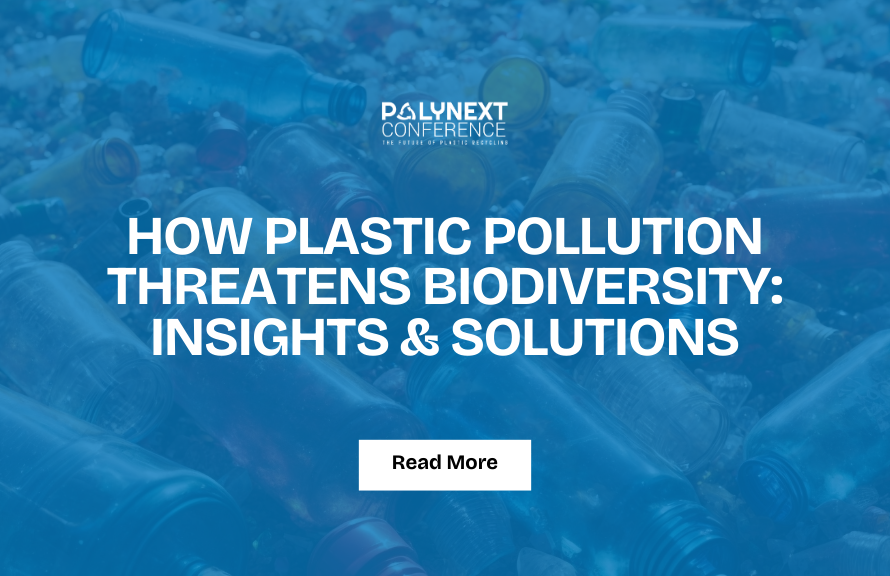Plastic Overshoot Day 2025 falls on September 5, marking when plastic waste exceeds global management capacity. Learn what it means, why it matters, and how events like PolyNext 2025 are driving change.
Plastic Overshoot Day marks the point each year when the world’s plastic waste exceeds the capacity to manage it safely. In 2025, this critical threshold falls on September 5th, serving as a stark indicator of our continued overreliance on plastic and its mounting consequences for ecosystems, public health, and economies worldwide.
Understanding Plastic Overshoot Day
While the concept may seem straightforward, Plastic Overshoot Day is backed by a detailed methodology that measures the imbalance between plastic production and sustainable waste management. It highlights the tipping point beyond which plastic waste is more likely to end up in open dumps, oceans, or the environment due to insufficient infrastructure.
This day not only quantifies global plastic mismanagement but also provides a benchmark for comparing countries based on their waste handling capabilities. For instance, some nations hit their national Plastic Overshoot Day within the first quarter of the year, underscoring the urgent need for tailored waste management solutions.
Mismanaged vs. Well-Managed Waste
Well-managed plastic waste refers to materials that are properly incinerated, recycled, or disposed of in sanitary landfills—systems that prevent direct leakage into the environment. In contrast, mismanaged waste—found in open dumps, unsanitary landfills, or scattered as litter—poses significant threats by polluting land, air, and water ecosystems.
Global and National Impact
Plastic Overshoot Day is not the same for every country. It depends on each nation’s plastic consumption and its waste management capacity. Many developing countries, often lacking robust infrastructure, surpass their sustainable threshold early in the year—sometimes within the first few weeks—contributing disproportionately to global plastic pollution.
Why It Matters
Environmental and Health Risks
Plastic pollution has become ubiquitous—reaching oceans, soils, and even human bodies. Microplastics have been detected in blood, lungs, and placentas, raising alarms about potential long-term exposure to harmful chemical additives and endocrine disruptors.
Economic and Social Challenges
Roughly 70% of the global population lives in areas where plastic waste exceeds management capacity. This strain not only degrades environmental quality but also burdens healthcare systems, disrupts livelihoods, and threatens the economic resilience of vulnerable communities.
Policy and Action
Plastic Overshoot Day is a red flag—and an opportunity. As negotiations progress on a legally binding Global Plastics Treaty, there’s a crucial moment for governments, industries, and individuals to commit to circular economy principles, invest in infrastructure, and enforce stricter regulations to reduce plastic leakage.
Looking Ahead
While global waste management has shown slight progress, the sheer scale of plastic production continues to outpace it. This means the volume of mismanaged waste remains dangerously high.
However, change is possible. By embracing innovation, circular design, education, and stronger policies, we can not only push Plastic Overshoot Day later each year but eventually eliminate it altogether.
Spotlight: PolyNext 2025 – Driving Plastic Solutions Forward
One of the most promising platforms addressing plastic waste in 2025 is PolyNext, a global conference and exhibition scheduled for October 1–2, 2025, in Dubai. The event brings together innovators, policymakers, startups, and corporations to showcase cutting-edge technologies in plastic recycling, biodegradable materials, and circular economy practices.
PolyNext serves as a timely response to Plastic Overshoot Day, turning awareness into action by enabling real-world solutions to be shared, scaled, and implemented.
Conclusion
Plastic Overshoot Day 2025 is a clear reminder that the world is still producing more plastic than it can sustainably manage. But it’s also a call to action. Through better policies, innovative technologies, and global cooperation —we can turn the tide on plastic pollution and protect both the planet and our health.
References
Geographical: Earth Reaches Plastic Overshoot Day
ClearIAS: Plastic Overshoot Day





